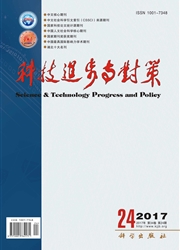

 中文摘要:
中文摘要:
中国转型经济背景下,企业家通过开创一种从无到有的制度而形成的制度创业即被认为是开拓型制度创业,以阿里巴巴电商模式为典型代表的开拓型制度创业实践对于开拓型制度创业机制研究具有重要意义。以阿里巴巴为研究对象,从利益相关者视角出发,将阿里巴巴制度创业中利益相关者分为核心利益相关者、蛰伏利益相关者和边缘利益相关者3类。运用扎根理论方法,提炼出阿里巴巴制度创业面临来自利益相关者的制度创业约束、所使用的制度创业策略以及所获取的制度创业合法化,构建出阿里巴巴制度创业机制模型,最终提炼出开拓型制度创业一般机制模型。
 英文摘要:
英文摘要:
Under the China's transition economy background,the pioneering institutional entrepreneurship is defined as an entrepreneur create a new institution that has never existed before,cases such as Alibaba has an important implications on pioneering institutional entrepreneurs.From the perspective of stakeholders,this paper chooses the Alibaba Group as our study case,divide Alibabas stakeholders into three categories:core stakeholders,dormant stakeholders and marginal stakeholders.Continually,we use grounded theory to extract the institutional constrain the entrepreneur has suffered from stakeholders,the institutional strategies the entrepreneur has used and institutional legitimacy that entrepreneur has achieved from stakeholders.Finally,we build the mechanism of pioneering institutional entrepreneurship.
 同期刊论文项目
同期刊论文项目
 同项目期刊论文
同项目期刊论文
 期刊信息
期刊信息
